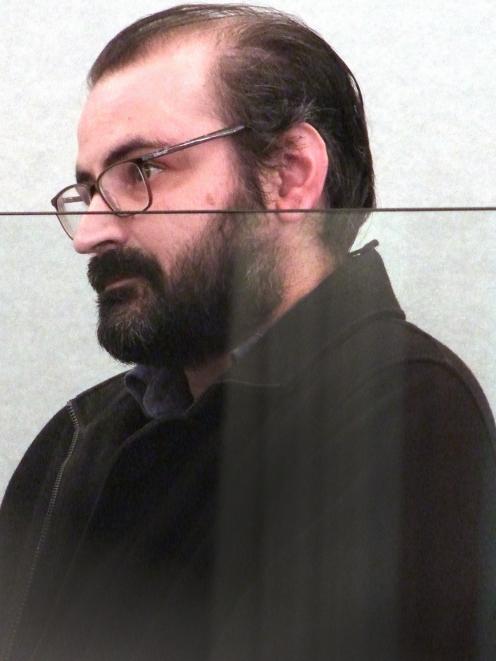
Aidin Jalilzadeh (39) previously pleaded guilty to a representative charge of forgery when he appeared in the Dunedin District Court in February.
The defendant, who was working for Landcare Research at the time, repeatedly committed the fraudulent activity between February 9 and November 2 last year, using his personal computer to format and print out pharmaceutical prescriptions.
Defence counsel Sarah Saunderson-Warner told the court today that Jalilzadeh's experiences in war-torn Iraq before he moved to New Zealand had a significant impact on his psyche and the subsequent addiction issues.
Jalilzadeh used the name of three Dunedin doctors, and printed out 31 fake scripts in total. He would then sign the name of the doctor to make them appear valid, before taking them to pharmacies around the city.
Some of the prescriptions were made out to the defendant and others were in his wife's name, the court heard.
The forgeries saw Jalilzadeh obtain the drugs codeine, tramadol and diazapam.
On two occasions, after receiving legitimate scripts from Dunedin Public Hospital, he altered them by handwriting “codeine phosphate” at the bottom.
Over the nine-month period, Jalilzadeh presented a total of 33 forged documents at seven pharmacies.
The scam finally came to an end on November 2 when he visited the Urgent Pharmacy and presented a false document for Tramadol in his partner's name.
The pharmacist became suspicious and pulled the pin on the scam.
When police later approached Jalilzadeh, he admitted the offending and acknowledged his addiction to codeine.
According to his employer's website, Jalilzadeh attained a PhD in mathematics from the University of Otago in 2015. Since pleading guilty though, the defendant had lost his job, the court heard.
Ms Saunderson-Warner said her client was originally prescribed painkillers for gastro-intestinal problems and while they helped his symptoms, he became hooked.
The man approached his doctor and went through a controlled detoxification, but it did not work. He would have felt “great shame” in revisiting the health professionals, Ms Saunderson-Warner said.
Judge John Macdonald said it was clear Jalilzadeh was now determined to remain opiate free.
The judge noted letters written on behalf of the defendant which he described as “very impressive”.
“One describes you as 'a talented scientist with a promising future'. I'm unsure where that promising future might be now, but obviously you have ability,” he said.
Jalilzadeh was sentenced to six months' community detention, nine months' supervision and ordered to pay $709 reparation.









